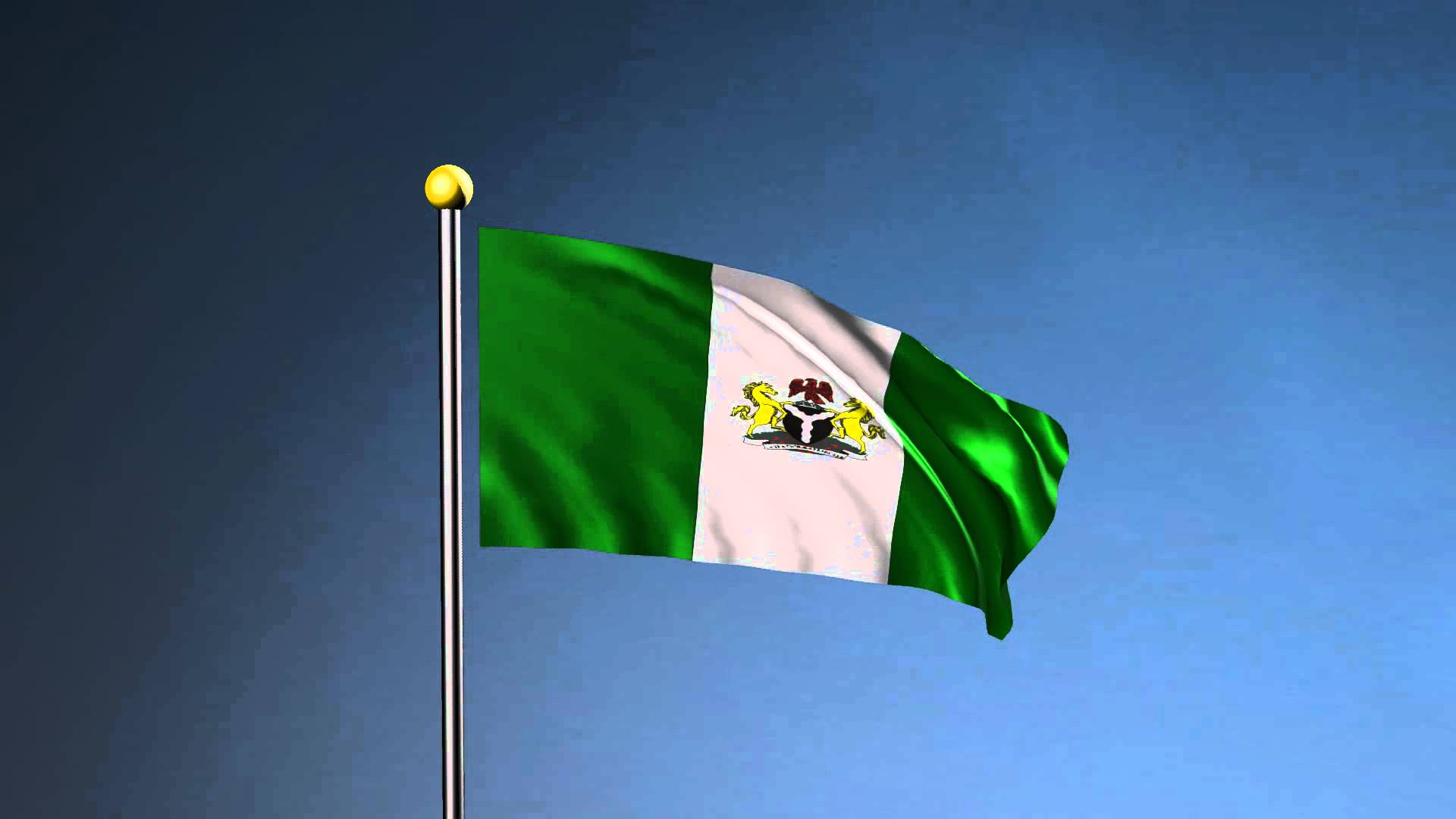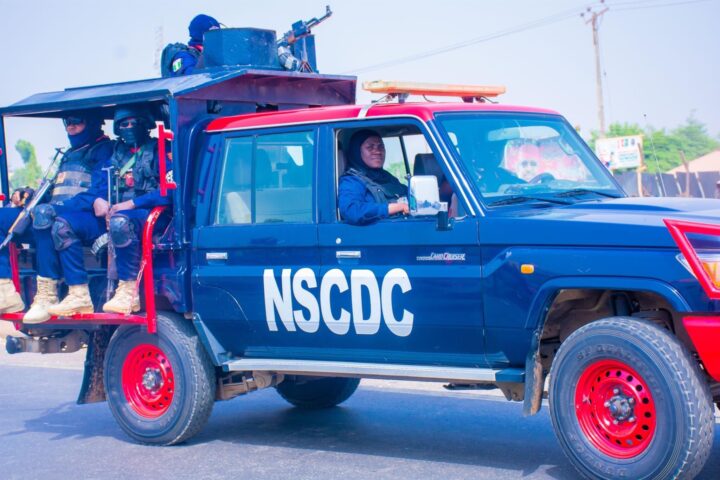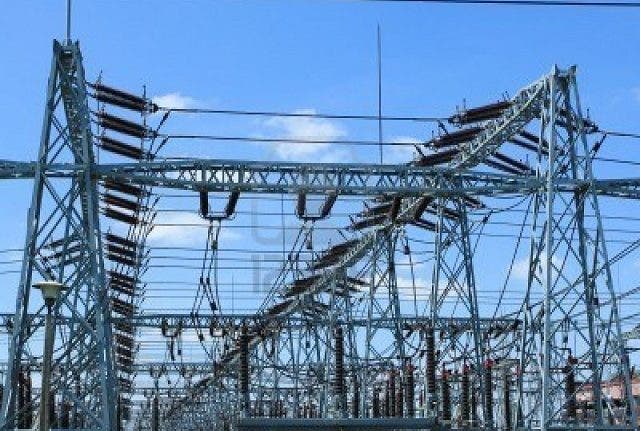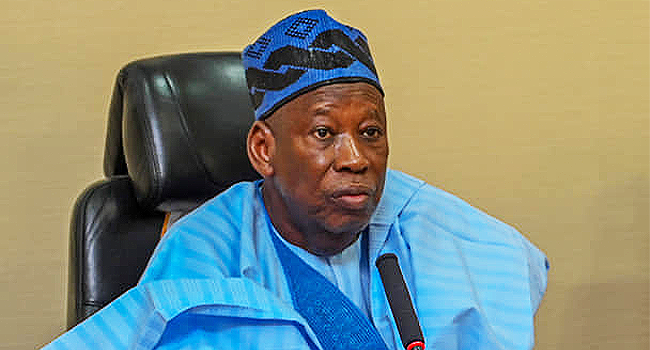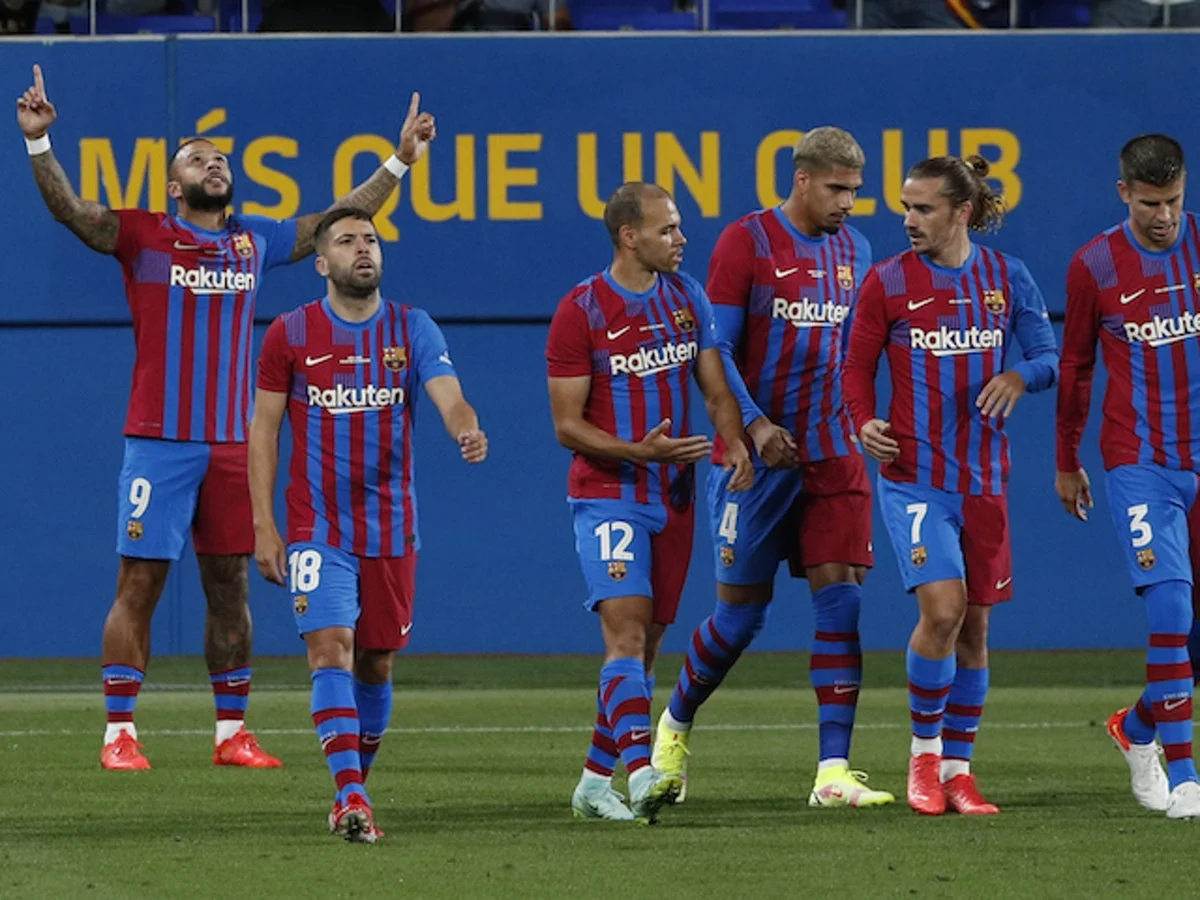By Olowogboyega Oyebade
Do you know that we have to congratulate President Buhari and all the new Ministers on the swearing-in ceremony held last week? Are you aware that Governor Adegboyega Oyetola was there to cheer up one of our own, Ogbeni Rauf Aregbesola, now the Minister of Interior? Do you know that swearing in such giants in capacity in the month of August and particularly on 21 August, 2019, just a day to the celebration of the National Productivity Day was not just a mere coincidence? Do you know that everything was wrapped by Mr President in symbolism of the Productivity Day? You care? Come along, please. The poem of A.P. Herbert cuts in:
“Nothing is wasted,
Nothing is in vain.
The seas roll over
but the rocks remain.”
Do you know that productivity describes various measures of the efficiency of production and measuresGDP per worker? Do you know that in Macroeconomics the most well-known and used measure of value-added is the Gross Domestic Product and is widely used as a measure of the economic growth of nations? Do you know that GDP is the income available for paying capital costs, labourcompensation, taxes and profits? Are you aware that increasing national productivity can raise living standards because more real income improves people’s ability to purchase goods and services, enjoy leisure, improve housing and education and contribute to social and environmental programmes? Do you know that these are the components indicative of productivity development, and approximate the efficiency with which inputs are used in an economy to produce goods and services? Can you now see that swearing in these giants at the eve of the celebration of the National Productivity Day of 22 August means that more innovations are expected of them? Do you know that all of them must develop the ‘Aregbe‘ tendency of doing unusual things to make the elephants in the room to fly? What are these elephants already locked in the rooms that must fly? Come along, please.
Do you know that Mr President did not leave the Ministers to grope in the dark? Do you know that he specified what the country wants? The speech of the President cuts in:
“ ….. Over the past four years, we have made enormous progress in tackling difficult challenges faced by the country. We have exited the country from recession, restored economic growth, curbed inflation and shored up our external reserves…. However, our nation continues to face tough challenges, …You were chosen from each of the 36 States of the Federation, and most importantly, you share my commitment to working tirelessly for the people of this country and to achieving a future where every Nigerian can reach his/her full potential. ….The core objectives of this Administration are to improve security, achieve diversified, inclusive economic growth and fight corruption. I am convinced that we can build a buoyant economy that supports inclusive growth and creates broad-based prosperity for every Nigerian – one that will absorb the two million Nigerians entering the labour market each year, as well as reduce the backlog of over 20 million unemployed or underemployed Nigerians.
… We must also intensify efforts to reduce internal security threats and eliminate corruption at all levels so as to ensure that our citizens have a safe and corruption-free environment where they can live and conduct their businesses, without fear and intimidation. …. we have agreed and prioritized the key strategic initiatives required to drive socio-economic growth in our country, which must be accomplished, because the people of Nigeria expect nothing less from us. We have also agreed on the appropriate Key Performance Indicators and deliverables to be achieved in the road map on Government priorities: 2019-2023. While recognizing the existing challenges, and the urgent need to surmount them, we must not fail to note the progress we have made since inception. Our economic policy, which is the Economic Recovery and Growth Plan, is still robust and on course with the necessary policies and initiatives to sustain the country’s exit from recession, engender growth and promote the value chain of infrastructural development….. Let me also emphasize that, as heads of your respective Ministries, and for effective implementation of your mandates, you are required to work closely with the Permanent Secretaries and Chief Executive Officers of Agencies under your purview. This has become necessary considering the fact that, the task of moving the country to the Next Level requires dedication, focus, and collective efforts. I must emphasize the importance of communication and harmony within our government. You must work in harmony with your fellow Ministers. Communication – vertical and horizontal can only be ignored at a price.
Do you know that the charge of Mr President is not just to the Ministers but to all political and career appointees in Nigeria but also to the private sector? Do you know that the All Progressives Congress while congratulating President Muhammadu Buhari and the newly-inaugurated ministers, echoed the same charge like Frank Idoho would say to the men on hot-seat in the programme tagged: “You Want to be a Millionaire?:“Your time starts counting now!” Excerpts from the statement of LanreIssa-Onilu, the Publicity Secretary of APC cut in:
“There are challenges to build on the foundations that have been laid in the last four years. To state a few, the APC-led government has an urgent task to lift Nigerians out of poverty, secure lives and property, grow our economy, build infrastructure, bring back discipline to our private and public conducts and mobilize Nigerians through personal examples towards evolving a Nigeria we all can be proud of. “We, therefore, urge the new ministers to justify the confidence reposed in them by the President and, indeed, all Nigerians, by settling down to work quickly and hit the ground running..”
Hurray! September 21 is at the door when the world will celebrate the International Day of Peace. Are you aware that the General Assembly of the UN declared this date as a day devoted to strengthening the ideals of peace, both within and among all nations and peoples? Do you know that the United Nations Member States adopted the 17 Sustainable Development Goals in 2015 because they understood that it would not be possible to build a peaceful world if steps were not taken to achieve economic and social development for all people everywhere, and ensure that their rights were protected? Do you know that these Sustainable Goals cover a broad range of issues, including poverty, hunger, health, education, climate change, gender equality, water, sanitation, energy, environment and social justice? Do you know that by 21 September, 2019,barely a month to their being sworn in, the loyalty and responses of these giant- Ministers will be put to test on these issues as they are now on the hot-seats? Do you know the theme for this year’s celebration? Come along, please.
Do you know that the 2019 Theme is “Climate Action for Peace” , a theme to draw attention to the importance of combating climate change as a way to protect and promote peace throughout the world? Do you know that climate change causes clear threats to international peace and security, a reflection of it manifesting in Boko Haram in Nigeria? Do you know that natural disasters displace three times as many people as conflicts, forcing millions to leave their homes and seek safety elsewhere either as Internally Displaced People or refugees? Do you know that desertification and salinization of water and crops are endangering food security, and the impact on public health is escalating, creating smooth corridors for diseases and deaths? Do you know that climate change is one of the remote causes of the growing tensions over resources in our country and equally causing mass movements of people into the forest regions for livelihood, causing ethnocentric tension of framers/herdsmen clashes in many States of the Federation? Do you know that the Ministers of Environment, Health, Water Resources Agriculture, Power and Interior must set a collective agenda to mark this year’s Day of Peace to chart a new course? Do you know that working in silos was never contemplated and must not be imported into it? Do you know that Sustainable Development Goal 13, “Climate Action”, is a call for immediate action by all to lower greenhouse emissions, build resilience and improve education on climate change, innovating affordable, scalable solutions such as renewable energy, clean technologies to grow the economy? The charge of Martin Luther King Jnr cuts in:
“Whatever your life’s work is, do it well. A man should do his job so well that the living, the dead, and the unborn could do it no better. If it falls on your lot to be a street sweeper, sweep street like Michelangelo painted pictures, like Shakespeare wrote poetry, like Beethoven composed music; sweep streets so well that all the hosts of heaven and earth will have to pause and say, ‘Here lived a great street sweeper, who swept his job well’”
Do you know that these giants of men as Ministers need special prayers and our collective support to make them succeed? Do you know that the operational environment for these giants are very challenging and slippery? Do you know that their environment is no longer their respective States or Constituencies but the entire country in relation to Africa and the world? Are you aware that there are certain Treaties and Protocols already in place that must regulate their performances? Do you know that some of these Treaties and Protocols do not give room for the use of personal discretion?
Do you know that Africa is at a critical juncture, economically speaking, in its trajectory of growth? .Do you know that the economy of Africa consists of limited trade, low-level industry, ill-performing agriculture, and less-innovative human resources? To change that trajectory to accelerate growth in 2015, do you know that African countries signed up to two important development agendas: the global 2030 Sustainable Development Goals (SDG), which aims to leave no one behind as countries develop, and the African Union’s Agenda 2063, which sets out a blueprint for the “Africa we want”? Do you know that each of the 54 countries in Africa has been searching for policy mixes to help accelerate the achievement of these targets? Do you know that for many of these countries, financing remains the biggest bottleneck with implementing capacity a close second and insecurity a close third? Do you know that to meet the SDGs , Africa will need to raise an estimated 11 per cent of GDP per year for the next 10 years?
Do you know that as we speak, Africa’s average tax revenue to GDP is below 16 per cent and many of these countries are not having effective tax regime and culture? Do you know that African countries have to maximize domestic resource mobilization through vibrant tax policies to creating adequate fiscal space for social policy, including supporting women and youth-led small and medium enterprises? Do you know that in March 2013, Africa was identified as the world’s poorest inhabited continent with a combined GDP which was barely a third of the United States’ GDP? Using that parameters, do you know that the World Bank speculated a growth rate of 5.6 per cent a year from then till 2025, thus raising per capital in Africa to at least US$1,000 per person a year) by 2025? Curiously, are you aware that in 2017, the African Development Bank reported that the growth rate was 3.4% in 2017, 4.3% in 2018, 4.0 in 2019 and 4.1 in 2020 as against 5.6 per cent projected to be the average sequence for each year from 2015 to 2020? Do you know that each of the 54 countries in Africa have to celebrate Peace Day and National Productivity Day together?
Do you know that all African countries including Nigeria, have been advised to eliminate all applied bilateral tariffs, keeping rules of origin simple, flexible, and transparent, removing all non-tariff barriers on goods and services, trade on a most-favoured-nation basis, implementing the World Trade Organization’s Trade Facilitation Agreement to reduce the time it takes to cross borders and the transaction costs tied to non-tariff measures and negotiating with other developing countries to reduce by half their tariffs and non-tariff barriers on a most-favoured-nation basis? Do you know that closing our borders because of insecurity or to observe a public holiday cannot add much to grow the continental agenda? Do you know that Africa to reform our financial sector, work to pool energy improve aviation to liberalise our borders to grow the economy to at least 5 percent?
Are you aware that part of the operational environment is the working-age population? Do you know that Africa’s working-age population is projected to increase from 705 million in 2018 to almost 1 billion by 2030 as millions of young people join the labourmarket? Do you know that the pressure to provide decent jobs by each of the countries will intensify? Do you know that at the current rate of labour force growth, Africa needs to create about 12 million new jobs every year to prevent unemployment from rising, out of which Nigeria is projecting to create 10 million jobs a year and 100 million jobs in 10 years? Do you know that strong and sustained economic growth is necessary for generating decent employment? It is a reality now that economic growth in Africa remains below population growth for the fourth consecutive year?
Do you know that ongoing global uncertainty coming from domestic macroeconomic instability including poorly managed debt, inflation and deficits; political and regulatory uncertainty; and fragility that are having visible negative impacts on some African economies are not clement enough as operational environment for a new Executive Council to fix all problems in one year? Do you know that we have to take it easy with them by exercising patience? And one more thing! Do you know that the new Federal Executive Council should interrogate why non-resource-intensive economies such as Kenya, Rwanda, Uganda Benin and Côte d’Ivoire recorded solid economic growth in 2018 and big economies such as Nigeria and South Africa with resource endowment slid down?
Do you know that in Africa generally, public debt levels and debt risk are rising and this scenario might jeopardize debt sustainability in some countries? Do you know that the availability of good jobs has not kept pace with the number of entrants into the labour force? Do you know that fragility is costing the sub-continent a half of a percentage point of growth per year; and poverty is widespread? Can you belief that while growth is expected to increase in 2019, it will remain insufficient to reduce poverty significantly to allow the entire Africa to create 12 million new jobs as projected talk less of 10 million new jobs for Nigeria alone?
Do you know that the total poverty headcount at the international poverty line ($1.90/day in PPP) is projected to decline only marginally in the 2019 Economic Report on Africa? Do you know that as of 2018, Nigeria was the biggest economy in terms of nominal GDP, followed by South Africa; in terms of PPP, Egypt is second biggest after Nigeria? Do you know that Equatorial Guinea possessed Africa’s highest GDP per capita? Do you know that oil-rich countries such as Algeria, Libya and Gabon, and mineral-rich Botswana emerged among the top economies in Africa and are still keeping themselves in good stead while Zimbabwe and the Democratic Republic of Congo, potentially among the world’s richest nations, have sunk into the list of the world’s poorest nations due to pervasive political corruption and mal-administration?
Do you know that the introduction of the new Economic Growth and Development Plan by the African Union members and mentioned in the speech of the President to the Ministers, and the African Continental Free Trade Agreement (AfCFTA) are aimed at collectively lift Africa as a continent up? Do you know that we have to halt the Dependency theory now by encouraging home-made products and services if indeed we are committed to reduce poverty? Do you know that this is the time to encourage Innoson Vehicle Manufacturing (IVM) concern, Zinox Computers and Dangote Refinery to turn us to be fuel exporter instead of fuel importer?
Do you know that the IMF has predicted that in 2019, several of the world’s fastest-growing economies in Africa will be led again by Ethiopia, Rwanda, Ghana, Côte d’Ivoire, Senegal, Benin, Kenya, Uganda, and Burkina Faso and Tanzania with 3.8 per cent relative growth? Do you know that the big elephant in the room of most of the African economies in 2019 is of course, rising debt which pose a real risk, with the likelihood of global recession in 2020? Do you know that commodity prices are projected to fall as demand drops? What are the implications? Do you know that interest rates on debts will rise? Do you know that several African countries might need to struggle with gnashing pain to manage their debt servicing—especially if interest rates continue to rise? Are you aware that, according to Brookings “at least” 14 countries in Africa are either in debt distress or at high risk of debt distress with these countries currently having total debt of around $160 billion, of which $90 billion is external debt? Do you know that Africa’s growing debt is a ticking time bomb with the average debt to GDP ratio rising to 57% in 2017 and has hit extremes in countries including Cape Verde, Eritrea, Congo Brazzaville and Mozambique where it exceeds 100% of GDP? Do you know that for Africa to compete in the global economic environment, debt management strategies must change for the better? Do you know that these lofty ideals cannot be achieved under an hostile industrial relations or regime of unproductivity?
At the home-front, do you know that Nigeria accounts for nearly 20% of continental GDP and about 75% of the West African economy? Do you know that despite this dominance, its exports to rest of Africa are estimated at 12.7%, and only 3.7% of total trade is within the ECOWAS States? Are you aware that the Nigeria Economic Outlook Macroeconomic performance reflected real GDP growth of 1.9% in 2018, with dismal performances in agriculture due partly to clashes between farmers and herders coupled with flooding in key middle-belt regions and continued insurgency in the northeast? Do you know that on the macroeconomic front, the delay by the National Assembly by the Sarakis of this world in approving the 2018 budget affected implementation and increased fiscal uncertainty by pushing the bulk of spending to the second half of the year? Do you know that some of our actions and inactions account for the fate of the country now? Do you now see why the new Ministers have to settle down to business to fast-track the submission of the 2019 Appropriation Bill to the National Assembly? Do you know that by June 2018, the stock of public debt stood at $73.2 billion representing 17.5% of GDP? Do you know that in November 2018, the government issued a Eurobond of $2.9 billion, which reflects its new debt management strategy of prioritizing foreign debt? Do you know that Real GDP is projected to grow by 2.3% in 2019 and 2.4% in 2020 as implementation of the Economic Recovery and Growth Plan gains pace as against 5.6 per cent projected for all African countries to lift them up from poverty, unemployment and wants? Do you know that the National Assembly’s approval of the N8.83 trillion 2019 “budget of continuity” has not been smooth due to presidential elections that came up in February 2019 and the ensuing litigations on it that are still distracting attention of the country? Do you know that the outlook depends on the pace of implementing the Economic Recovery and Growth Plan, which anchors Nigeria’s industrialization drives? Do you know that the Power Sector Reform Programme targets 10 giga-watts of operational capacity by 2020 and this can only be achieved by collaborating with private investors? Do you know that we need to reorient the federal budget toward more capital expenditure and social spending?
Are you aware that Nigeria has made giant strides with institutional and governance reforms, including implementation of the Integrated Financial Management and Information System and the Integrated Payroll and Personnel Information System? Are you aware that the promulgation of the Secured Transactions in Movable Assets Act 2017 has institutionalized and widened coverage of collateral to stimulate lending to small and medium enterprises while the Central Bank and the Bank of Industry are innovating with intervention funds? Do you know that though Nigeria has a relatively low debt-to-GDP ratio, there is need for fiscal prudence to avoid a debt trap, especially as global interest rates start to rise, and about 50 per cent of receipt going to debt-servicing?
Do you know that with the demand for the full implementation of the minimum wage, the labourunions must be ,made to see what the issues are so as not to waste useful man-hours on strikes as anti-thesis to measure productivity? Do you know that with a weaker global economy, oil price volatility, risk of disruption to oil production, power shortages, the slow pace of reforms, insecurity and inadequacy of capacity, that the GDP growth may not amount to much? Do you know that Nigeria’s ambitious Economic Recovery Plan” is not going according to plan? Do you know that all of us have to grow the economy? Do you know that while the ERGP projected strong GDP growth rate of 4.5% in 2019, a report recently released by National Bureau of Statistics shows the economy grew by 2.01% in the first quarter of the year—a slowdown in growth from the previous quarter and the African Development Bank thinks so as well as it predicts Nigeria’s economy will grow by only 2.3% this year, thus making 2019 to be the third straight year in which economic growth falls short of the ERGP’s projection? Do you know that the ERGP’s bold forecasts projected Nigeria’s unemployment rate to drop to 12.9% this year as against 24 per cent but the recent statistics have not shown that it has come down? Do you know that accounts for the high wave of crime and violence in the country?
Do you know that as we stay glued to solving these economic malaise, do you know that we have to give strategic attention to certain issues of general understanding such as credible national population census, State Police, regionalism, Electoral System, Land Reforms and State creation, system of Local Govt administration: funding, creation and autonomy, rotation of power, Revenue & fiscal allocation, gender equality, social protection in Chapter Two of the Constitution and the issue of creating 100 million jobs in ten years? Do you know that each Minister has certain elephants already locked up but must be made to fly? Come along.
Do you know that the elephants in the room of the Ministry of Education are the 10.2 million out of school children roaming about the street, the unending strikes in the tertiary institutions owned by Government, proliferations of fake tertiary institutions and the exodus of Nigerian youths to seek for tertiary education outside the country due to insecurity and unrest occasioned by infrastructure decay and Federal Government’s failure to honour agreements entered with unions in the education sector including ASUU, COEASU, ASUP, NASU, SSANU and NAAT? Do you know that the elephants that must be made to fly by the Minister of Interior include: the maintenance of internal security and citizenship integrity for the promotion of good governance in relation to Nigeria Correctional Service, Immigration Service, Fire Service and the Nigeria Security and Civil DefenceCorps Service, the influx of idle foreign nationals as a result of the nation’s porous borders, killing of innocent citizens, vandalization of critical infrastructure and the rage of herdsmen and farmers? Do you know that the elephants in the Justice and Finance Ministries includethe $9.6 billion arbitral judgement against Nigeria, innovating new laws to assist IGR and creating enabling environment to graft new investments and promoting effective excise duty?
Do you know that the elephants in the Ministry of Housing is the will to get the housing units already constructed allocated to rightful beneficiaries and to seek for partnership with Pension Commission to get viable investment in constructing mass housing for millions of Nigerians who are homeless or living in slums? Do you know that the elephants that must fly in the Ministry of Transport are the five Eastern and Southern ports of Warri, Port Harcourt, Calabar, Onneand Onitsha inland complexes that must fly before the second anniversary of this administration to provide the necessary employment from their rich potentials? Do you know that the elephants that must fly in the Ministry of Foreign Affairs is how to conduct diplomacy to pacify Nigerians in the diaspora taking up our leaders on domestic issues that can be mutually resolved and the xenophobic attacks on Nigerians in some selected African countries? Do you know that the elephants in the Ministry of Agriculture include lack of adequate synergy anong the stakeholders to guarantee food security for the country and lack of innovation to introducing modern livestock breeding to curb the menace of herdsmen? Do you know the elephants in the Ministry of Health manifest in the menace of fake drugs, fake hospitals and incessant industrial actions embarked upon by Government Hospitals including Teaching Hospitals? Do you know that it is funny that the vaccines for most of the killer-diseass afflicting children are produced abroad, 69 years after independence. Today, our country imports cutlasses, knives, pencil, tissue papers, torch, bra, pants and other basic necessities of life. Can you now see that our country is in a State of emergency? Do you know that this is the first time our country is putting together this team of giants with high capacity to perform? Do you know that we must try at all cost not to fritter away the opportunity? As we welcome all the new Ministers and advisers, we wish them well in the service of the nation. And to Ogbeni Aregbesola, “ HiSoleto? Hi Africa! A Letter From Abraham Lincoln To His Son’s Teacher cuts in:
My son starts school today. It is all going to be strange and new to him for a while and I wish you would treat him gently. It is an adventure that might take him across continents. All adventures that probably include wars, tragedy and sorrow. To live this life will require faith, love and courage.
So dear Teacher, will you please take him by his hand and teach him things he will have to know, teaching him – but gently, if you can. Teach him that for every enemy, there is a friend. He will have to know that all men are not just, that all men are not true. But teach him also that for every scoundrel there is a hero, that for every crooked politician, there is a dedicated leader.
Teach him if you can that 10 cents earned is of far more value than a dollar found. In school, teacher, it is far more honorable to fail than to cheat. Teach him to learn how to gracefully lose, and enjoy winning when he does win.
Teach him to be gentle with people, tough with tough people. Steer him away from envy if you can and teach him the secret of quiet laughter. Teach him if you can – how to laugh when he is sad, teach him there is no shame in tears. Teach him there can be glory in failure and despair in success. Teach him to scoff at cynics.
Teach him if you can the wonders of books, but also give time to ponder the extreme mystery of birds in the sky, bees in the sun and flowers on a green hill. Teach him to have faith in his own ideas, even if every onetell him they are wrong. Try to give my son the strength not to follow the crowd when everyone else is doing it. Teach him to listen to every one, but teach him also to filters all that he hears on a screen of truth and take only the good that comes through. Teach him to sell his talents and brains to the highest bidder but never to put a price tag on his heart and soul. Let him have the courage to be impatient, let him have the patient to be brave. Teach him to have sublime faith in himself, because then he will always have sublime faith in mankind, in God.
This is the order, teacher but see what best you can do. He is such a nice little boy and he is my son.By

